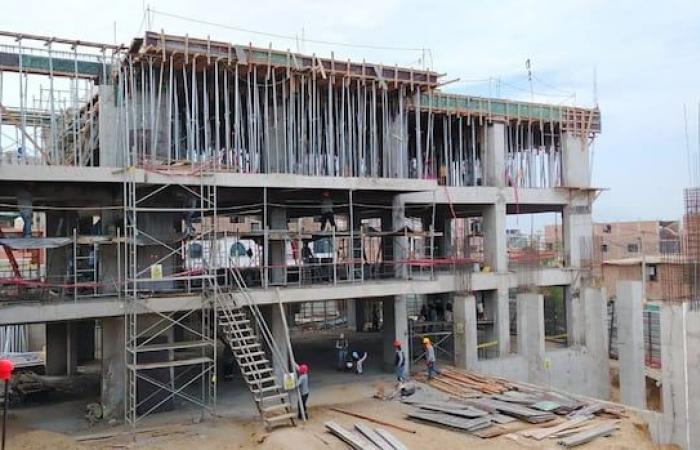This dilemma was the object of analysis in an administrative procedure followed before INDECOPI, the controversy began when a consumer made the payment of an initial quota to separate a lot of land offered by a Real estate company as part of a project in the district of Laredo, in the province of Trujillo.
Subsequently, after being informed that he did not meet certain requirements to continue with the acquisition process, he decided to give up the sale and formally submitted a request to return the amount delivered.
Despite having recognized the request for withdrawal, the company did not return the money at the time it was required, claiming economic difficulties. After a considerable period, the consumer decided to file a complaint with Indecopi to claim the reimbursement of the sum paid for the concept of separation from the property.
Also read: INDECOPI alert about attempt to eliminate appeal in processes by bureaucratic barriers
The Indecopi court evaluated whether the return of the initial quota paid by the consumer corresponded despite not having established penalties in the contract. The Chamber concluded that the supplier had the duty to return the money as the sale has not been completed, in accordance with articles 18 and 19 of the Consumer Protection and Defense Code, which regulate the suitability of the service.
It was also taken into account that the supplier recognized his obligation, but alleged economic difficulties to fulfill it. The justification based on the effects of the pandemic was discarded by the court, considering that there was no direct link with the breach that occurred three years later.
Although the company returned the money in February 2024, after initiated the procedure, the Chamber considered that the infraction had not been configured for not attending the request for withdrawal submitted in January 2023.
Therefore, he confirmed that there was administrative responsibility, although he revoked the corrective measure for having fulfilled the reimbursement. He also declared void the initial fine imposed in the first instance by an incorrect application of the graduation decree of sanctions and, instead, imposed a fine.
Finally, he confirmed the company’s obligation to reimburse the costs of the procedure and registered the infraction in the Registry of Infractions and Sanctions of INDECOPI.
Real estate and consumers: conditions to retain or return payments by separation
Also read: Online trade: why almost all those who claim go to Indecopi?
Fabricio Sánchez, partner of Benites, Vargas & Ugaz, He points out that, in consumer relations, the supplier is subject to three types of guarantees: legal, explicit e implicit.
Legal guarantees are those established by mandatory norm and compliance, such as the provisions of the Consumer Protection and Defense Code that regulate the sale of real estate-for example, the obligation to deliver the good with physical-legal sanitation and within the promised period. The explicit guarantees are those that the supplier voluntarily offers through the contract, even if the law does not demand them.
Finally, the implicit guarantees derive from the uses and customs of the market, as certain conditions that consumers expect in certain sectors. In the real estate field, the breach of any of these guarantees can lead to the requirement to return amounts paid by the consumer, even if the sale has not been completed.
Giancarlo Baella, partner of the Hernández & Cía study, He warns that, in real estate separation contracts, the existence or absence of a penalty clause for withdrawal is key to determining if the supplier can retain part of the amount delivered by the consumer.
If there is no express clause that establishes a penalty in the event that the buyer desist for his own decision, the supplier would not be legitimized to conserve the money, as Indecopi himself has determined.
In addition, Baella points out that Indecopi, for several years, maintained the criterion of not intervening in the evaluation of penalties agreed between the parties (EG percentage), considering that doing so would imply an indirect form of price regulation.
However, it indicates that the resolution (No. 1053-2024) reflects a possible change of position, since the authority described as abusive a penalty of 30% of the amount delivered, without a detailed argument on its reasonableness. This trend – according to Baella – could generate legal uncertainty for suppliers that structure their contracts based on rules previously accepted by the market and with commercial reasonableness.
In relation to the argument of Opportunity costFabricio Sánchez points out that this can only be invoked by the supplier when There is no breach on your part and the consumer decides to give up the purchase unilaterally.
In that scenario, if the contract establishes a penalty or the delivery of the amount was agreed as a signal (Rast), the supplier would be empowered to totally or partially conserve the money delivered, as compensation for having separated the good and not having offered it to other interested parties.
Baella agrees that the supplier can justify the retention of the amount only if two conditions are met: that the consumer has withdrawn without cause attributable to the supplier And that exists an express contractual clause That provides penalty.
Otherwise – that is, if the supplier breaches or does not establish any penalty – the loss of the opportunity cost to retain the money cannot be claimed. In addition, Baella emphasizes that the change in INDECOPI criteria regarding penalties could limit this possibility even when the parties have agreed, which generates concern about the stability of the contracts.
Also read: Telephone in the hands of Integra Tec: What is your bankruptcy process before Indecopi?








